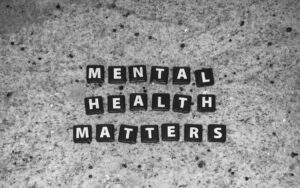Mental wellness is the concerted effort to maintain emotional and mental health. Your mental health has a profound impact on your physical well-being and your overall perception of yourself and your surroundings. When your mental health is poor, it can lead to depression, anxiety, self-loathing, low self-esteem, and physical problems. It influences how well you connect with others, build relationships, and process thoughts and emotions.
Strategies for Improving Mental Wellness
You can improve your mental wellness and avoid the effects of depression and anxiety by making a few lifestyle changes. However, these may seem like minor tweaks to your lifestyle over time, but they will compound into a healthier life and boost your mental health.
The following are several strategies for improving mental wellness and living your best life.
Prioritize self-care
A healthier life starts with prioritizing self-care. Making more nutritious choices and eliminating vices will boost your mental, emotional, and physical health. One day of healthy choices may not seem to make a difference, but consistent days of healthier choices will form habits that will improve your life.
 Start with choosing more nutritious foods by prioritizing protein, picking fresh fruits and vegetables, and consuming whole grains and healthy fats. Ultra-processed foods and foods with added sugars worsen mental health and the symptoms of depression and anxiety. Consuming too many caffeinated drinks can leave you feeling jittery and anxious, so opt for water as your primary hydration source.
Start with choosing more nutritious foods by prioritizing protein, picking fresh fruits and vegetables, and consuming whole grains and healthy fats. Ultra-processed foods and foods with added sugars worsen mental health and the symptoms of depression and anxiety. Consuming too many caffeinated drinks can leave you feeling jittery and anxious, so opt for water as your primary hydration source.
Consistent exercise is another effective way to practice self-care. Exercise triggers the body to release endorphins, as well as the hormones serotonin and dopamine, leaving you feeling happy and accomplished. It also lowers the stress hormone cortisol. Chronically high levels of cortisol can lead to depression.
Aim for 150-300 minutes of moderate-intensity exercise per week, divided into 30-60 minutes of exercise five days a week. Even ten-minute sessions can provide a mental health boost.
Work toward good quality sleep
Your mental health can take a downturn if you are sleep deprived, going to bed too late, or waking up throughout the night. The brain and body require good-quality sleep to rest and recharge. Due to the release of specific neurotransmitters, you rest with a sense of calm.
To promote good sleep, adopt a nighttime routine. You want a simple routine that signals to your mind it’s time for bed. Avoid activities, such as exercise or screen time, at least two hours before bed, as these can disrupt sleep.
 Instead, think of ways you can rest and relax. For example, after dinner, you could take a warm bath or shower, put on your favorite pajamas, and climb into bed with a book or a cup of herbal tea. If you have younger children, consider dressing them in their PJs and reading a book together as a family activity.
Instead, think of ways you can rest and relax. For example, after dinner, you could take a warm bath or shower, put on your favorite pajamas, and climb into bed with a book or a cup of herbal tea. If you have younger children, consider dressing them in their PJs and reading a book together as a family activity.
Caffeine can disrupt sleep, keeping you from falling asleep or causing you to awaken periodically. Try to avoid caffeine in the late afternoon to help you fall asleep more easily. If you must drink a caffeinated beverage, try to limit it to one or two in the morning, then switch to non-caffeinated or water for the rest of the day. Consult your doctor to determine the optimal amount of water for your specific needs.
Although you want to avoid strenuous activity before bed, stretching poses can help ease tense muscles, focus your attention on deep breathing, and promote flexibility. Try a few stretching exercises you can do in bed before getting under the covers. You can find five and ten-minute stretching videos online to stream before bed.
Reach out to others
Having someone to connect with can give you a sense of security, belonging, and closeness. We all want to belong, yet may find it difficult to relate to others. Find groups in your area that share similar interests to yours. Check at your local library, community center, or online for a list of local groups that meet either in person or virtually. You can typically find groups for everything from knitting and crafting to gamers and book clubs.
 Support groups are another place to find camaraderie. If you share a common interest, these groups offer encouragement, support, and advice from others who have faced similar issues. You may be able to find support groups for depression and anxiety, grief, substance abuse, eating disorders, and more. Alternatively, consider joining a group for a specific category of people, such as stay-at-home moms or homeschool parents.
Support groups are another place to find camaraderie. If you share a common interest, these groups offer encouragement, support, and advice from others who have faced similar issues. You may be able to find support groups for depression and anxiety, grief, substance abuse, eating disorders, and more. Alternatively, consider joining a group for a specific category of people, such as stay-at-home moms or homeschool parents.
Friendships are not found. You must form new friendships and nurture the ones you have. Don’t be afraid to invite others for lunch or to join you to watch a game or movie. You want to build close connections with people who can support and receive support and encouragement from you.
Engage in activities you love
Life is busy, but don’t neglect the activities that make you happy. The hobbies and interests that feed your soul will promote peace and happiness in your life. This might include physical activities such as sports, golf, cycling, or training for a marathon. It could consist of less strenuous hobbies, such as reading, fishing, or crocheting. Is there a specific activity that you’ve been putting off for too long? Something you love to do, but haven’t had the time?
Pay attention to how you feel after reviving an old hobby or interest. You may find that you have a sense of calm. How about giving yourself a challenge? Try learning something new. Consider downloading an app to learn a foreign language or attending a painting class. Challenging yourself helps you to grow, tackle obstacles, and feel a sense of accomplishment.
Set goals to cultivate a growth mindset and enhance your mental wellness by accomplishing small tasks. Choose goals that are specific, measurable, attainable, relevant, and timely (known as SMART goal setting). These goals help keep you on track.
Take larger goals and break them down into achievable tasks. Your confidence will grow as you accomplish more tasks. Try to break these tasks down into manageable fifteen-minute chunks and tackle one a day, if possible. Celebrate the journey even more than you do the result.
Look after yourself
 Looking after yourself is not selfish. It’s critical for your mental wellness. Stay on top of annual wellness appointments and screenings. Schedule them during your birth month to make it easier to remember.
Looking after yourself is not selfish. It’s critical for your mental wellness. Stay on top of annual wellness appointments and screenings. Schedule them during your birth month to make it easier to remember.
Learn how to build emotional resilience. Emotional resiliency enables you to manage disappointments and the storms that life throws at you while resuming your responsibilities. It is how you process emotions maturely. Learn how to identify negative thoughts and reframe them into positive ones that result in a different outcome.
Above all, stay grateful to God for the life you have and the blessings it brings. Journal your gratitude to help you acknowledge answered prayers. Use your journal to reflect and strengthen your connection to God. Take up a Bible reading plan or Bible study. Join a church or ministry to fulfill a calling on your talents.
Care for your physical body as well as your mental, emotional, and spiritual health. Remember that God views the body as a dwelling place for the Holy Spirit. Honor and respect the vessel while keeping your heart and mind dwelling on the Lord. It is all interconnected.
If you need help with your mental health, reach out to a counselor right away. Sometimes, it only takes adopting new skills and strategies to help a person navigate a rough patch, both mentally and emotionally.
Next Steps
If you are having problems with your mental wellness or you feel that your thoughts and emotions are out of control, reach out to a Christian counselor today. When you contact our center, we will connect you to a Christian counselor. Seek help for your mental wellness as soon as possible to prevent future problems.
Photos:
“Mental Health Matters”, Courtesy of Marcel Strauss, Unsplash.com, CC0 License; “Breakfast and Book”, Courtesy of Jess Bailey, Unsplash.com, CC0 License; “Mindfulness”, Courtesy of Lesly Juarez, Unsplash.com, CC0 License; “Therapy”, Courtesy of Marcel Strauss, Unsplash.com, CC0 License
-
Marissa Erickson: Author
Throughout our lives, challenges arise that may be beyond our ability to overcome. Everyone needs a safe space, support, and, at times, guidance to work through those challenges. My goal and purpose is to provide that space and support to help you na...
Recent Posts
-
Kate Motaung: Curator
Kate Motaung is the Senior Writer, Editor, and Content Manager for a multi-state company. She is the author of several books including Letters to Grief, 101 Prayers for Comfort in Difficult Times, and A Place to Land: A Story of Longing and Belonging...
Recent Posts
DISCLAIMER: THIS ARTICLE DOES NOT PROVIDE MEDICAL ADVICE
Articles are intended for informational purposes only and do not constitute medical advice; the content is not intended to be a substitute for professional medical advice, diagnosis, or treatment. All opinions expressed by authors and quoted sources are their own and do not necessarily reflect the opinions of the editors, publishers or editorial boards of Stone Oak Christian Counseling. This website does not recommend or endorse any specific tests, physicians, products, procedures, opinions, or other information that may be mentioned on the Site. Reliance on any information provided by this website is solely at your own risk.






